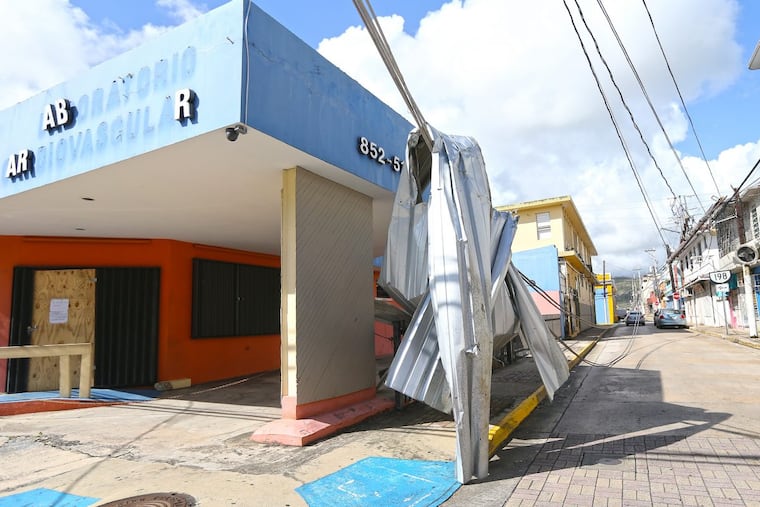Puerto Rico devastation highlights issue of medical-supplies shortage
A single factory in Puerto Rico operated by Baxter International Inc., has been put out of commission, creating a major crisis in the care of patients in the United States and beyond.

The world's attention has been rightly focused on the havoc wrought by Hurricane Maria on Puerto Rico and the suffering of the people of the island. But it's also worth paying attention to the storm's impact on the drug manufacturing plants that constitute a major component of Puerto Rico's economy.
In particular, a factory operated by Baxter International Inc. has been put out of commission, creating a major crisis in the care of patients in the United States and beyond.
The supplies that Baxter provides hospitals are prosaic and commonplace: small volume sterile bags to hold intravenous solutions and concentrated amino acid solutions for IV nutrition. But because hospitals can't obtain these items, they've had to resort to urgent measures to make up for these shortages.
Some have yielded to the temptation to buy supplies from the "gray market," in which shady brokers offer poorly sourced goods for exorbitant prices.
Most other hospitals around the country have begun rationing or restricting access to these drugs and supplies — limiting their use to only those cases where there is a good chance for success; making sure there is minimal waste; and making every effort to secure new stocks from reputable sources when possible.
As medical professionals, we are worried that patients will suffer simply because we cannot get the bags in which to put their IV fluids or will literally starve to death because we can't provide the sustenance they need to survive.
This is not a new problem. Rather, it is an acute exacerbation of one that has been festering for years.
Despite numerous calls for action by the Food and Drug Administration, shortages of critically needed drugs in the U.S. continue and, in some ways, are getting worse. It could be antibiotics routinely used to cure serious infections or medications needed for critical surgical procedures or chemotherapy agents that help treat — and even cure — cancer; there is no predicting what will be next on the list.
The causes are varied, but frequently are due to business decisions by pharmaceutical manufacturers to discontinue production of minimally profitable but crucial compounds of which they are the sole suppliers. Other times, production problems arise, or raw materials become scarce or the supply chain has moved overseas. Whatever the cause, it results in doctors and pharmacists scrambling to find replacements to help patients who may be seriously ill.
Until the FDA, under pressure from the public, begins to confront this issue in an effective and powerful way, we will continue to have shortages of critical medicines. What could help? First, we should develop contingencies for single-source drugs vital to public health, including plans that guard against the loss of production and establish alternate sources.
Second, manufacturing plants potentially vulnerable to storms, floods, etc. — such as the Baxter factory in Puerto Rico — should be required to store sufficient stockpiles of vital medicines and supplies in a safe and accessible locations so that an interruption of production would not lead to a major, prolonged shortage.
Finally, since so many of the raw materials for American pharmaceutical manufacturing come from foreign suppliers, including those located in countries with which we have sometimes fraught relationships (such as China), we should consider requiring companies to establish more reliable and dependable sources.
This is a big, perennial problem that requires serious and immediate attention. The website of the American Society of Health-System Pharmacists, which offers the most comprehensive and up-to-date register of drugs and related supplies, lists almost 200 that are actively scarce. That is a huge number of medications that are vitally important to the patients who need them.
It's difficult to imagine that we can't obtain drugs that can cure people who are sick in America at the end of 2017, but it's true.
Philip M. Rosoff is a professor of pediatrics and medicine at Duke University. philip.rosoff@duke.edu